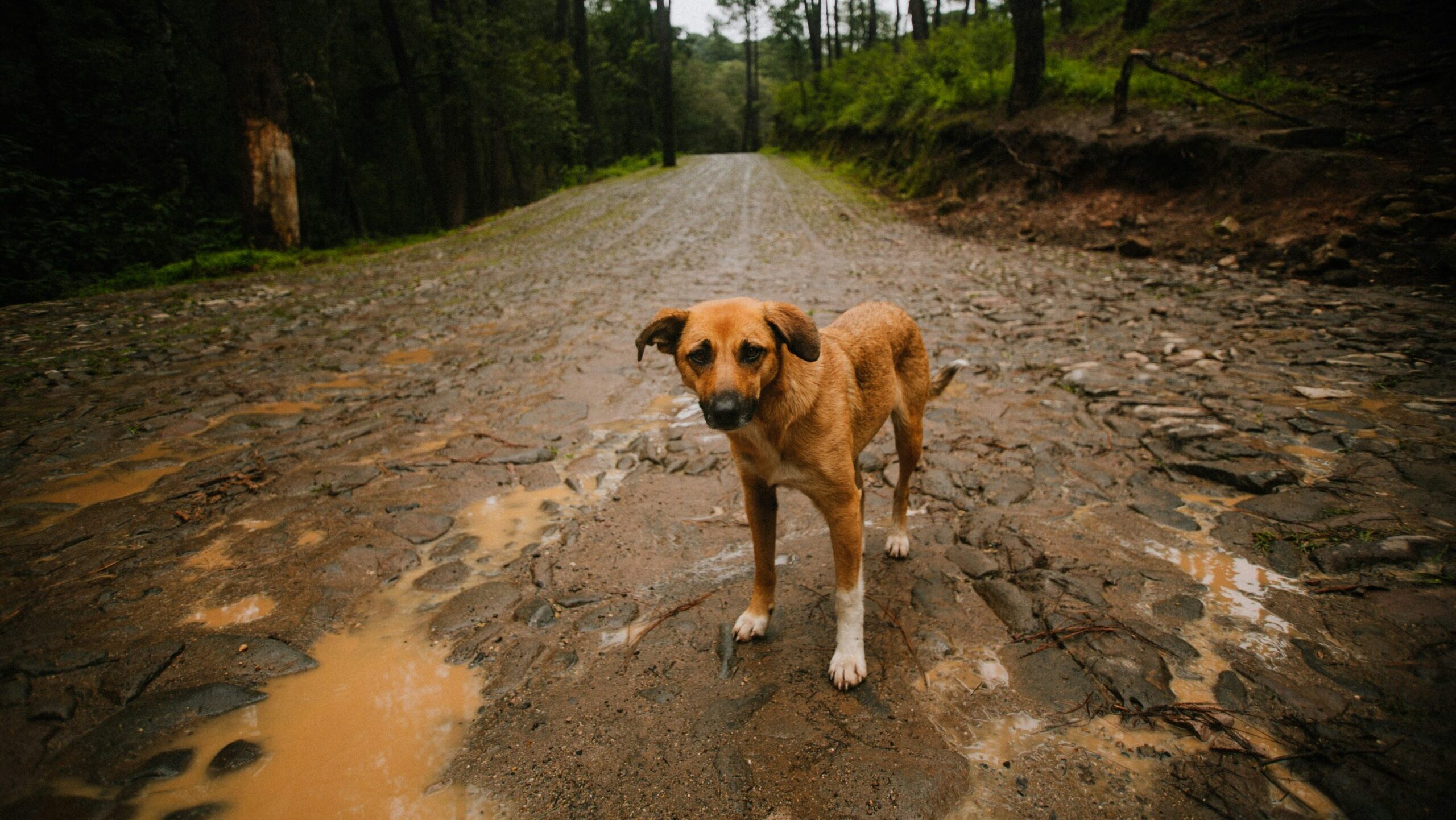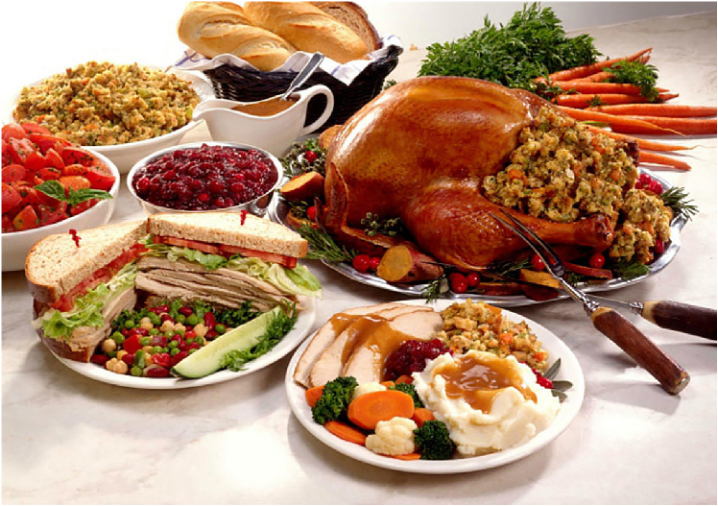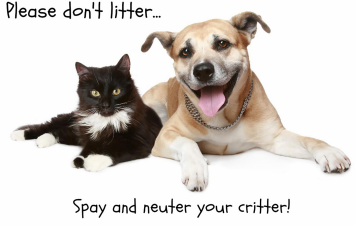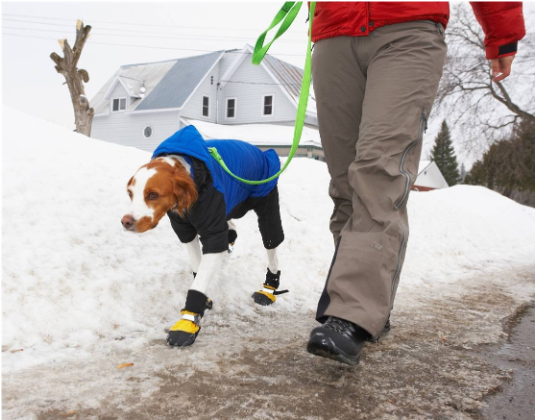Spring Colds and your Dog | Why Standing Water is a No-No

Standing Water is a No-No.
This time of year, there are puddles everywhere and dogs like to have fun. But those puddles may be harboring health hazards for our companions. Puddles are communal water bowls. Wildlife drink, walk through and pee in them and the puddles, as well as the mud around them are likely to harbor many things that are dangerous to our pets. Some germs and diseases can be hanging out in puddles.
There are poisoning risks from puddles depending on their location; if the puddles are in the street, the risk is especially true as antifreeze is HIGHLY toxic to animals. Oil, gas and diesel can also be in puddles which may affect the gastrointestinal, skin or central nervous systems. In addition, salt based ice melters can cause serious toxicity or digestive upset risk. Below are other things that can be living in standing water this Spring.
GIARDIA
This parasite of the intestines causes Giardiasis and is a common cause of diarrhea in dogs. The degree can vary from mild to severe. They can also serve as a means to infect other dogs. The parasite is spread by fecal contamination and thrives in water. Dogs often both play and drink contaminated water and become infected. There is no vaccine to help protect against Giardia in dogs and can even sicken people.
LEPTOSPIROSIS
This bacteria also loves water. It is spread through urine of an infected animal and that doesn’t need to be another dog. The bacteria can find its way into water through rodents and other wild animals such as squirrels, raccoons and deer. Leptospirosis is highly contagious amongst dogs and can also affect people. There are vaccines against this bacteria.
CRYPTOSPORIDIOSIS
This is caused by a parasite. Water can be contaminated with fecal matter from infected wild and domestic animals. This can cause dehydration and diarrhea in dogs. Infections are more severe and can be potentially life threatening if the dog has a compromised immune system.
INTESTIONAL WORM PARASITES
Eggs for roundworms, hookworms and whipworms can be found in mud and they can live there for a very long time. These worms can cause a variety of problems for dogs. There are common preventatives and can help protect against these worm.
CANINE PARVOVIRUS
This is a highly contagious virus and unvaccinated dogs and puppies are most at risk. Dogs can become infected through direct contact with other dogs and contact with the environment, contaminated poop or people. The virus can survive in the environment for a long time since it is resistant to heat, cold, humidity and drying. It can be easily transmitted from place to place. There are effective vaccines to help protect your dog.
You can mitigate the risk of spreading disease by doing the following:
- Carry water with you on all hikes and to be on the alert for all standing water.
- Try to ensure dogs do not drink out of community water bowls. If you cannot prevent it, make sure you dump out the old water and replace with fresh.
- Make sure your pooch is up to date on vaccines
- If your dog is not old enough for all of their shots, DO NOT take them to an area where they risk infection
Taken from “The Problem with Puddles for Dogs” by Dr. Beth Turner DVM
Published July 31, 2023 Preventative Vet
Share this resource
[addtoany]Contact Us
Whether you’re looking to adopt, volunteer or simply want to chat about your love for animals, we’re all ears (and paws). Contact us today!




